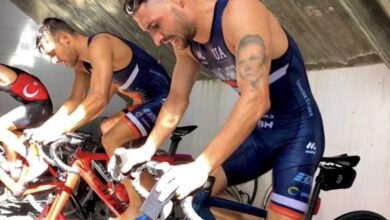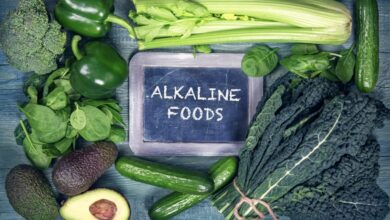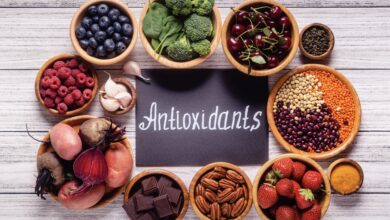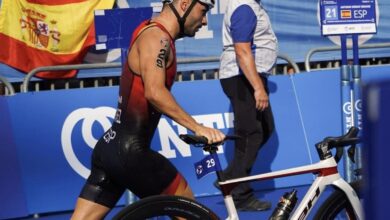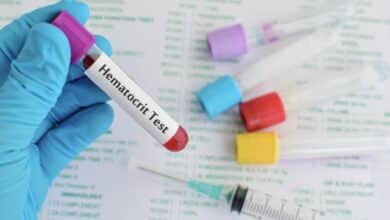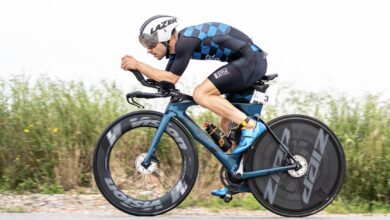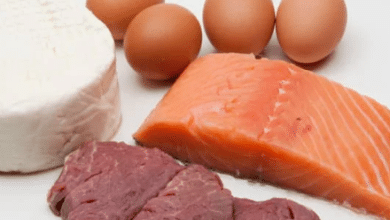Do you have to combine protein and carbohydrates to restore glycogen after training?
During training, the glycogen stores that our muscles have are depleted and it must be recovered correctly

Our friends Crown Sport Nutrition, from the hand of Pedro Valenzuela tell us on this occasion what we have to do to recover glycogen after sports practice.
After a tough workout, the recovery process is essential to improve our performance. Especially if we are one of those athletes who are always thinking about competitions or double training from time to time.
During training the glycogen stores that our muscles have are exhausted and the athlete must bear in mind that recovering them has to be one of their main objectives after exercise.
If these deposits are not recovered well, they can affect performance in future training sessions.
How do we restore the glycogen store?
It is made through carbohydrates. These are the main macronutrient we have to be able to "fill" them again.
The latest research indicates that you have to consume 1,2 grams of carbohydrates per kilo of weight every hour, during the period between 4 - 6 hours post-exercise.
What about proteins?
Traditionally in the world of training it has been indicated that proteins can increase the insulin response, facilitating the entry of carbohydrates into the muscle and thus facilitating the synthesis of glycogen.
Based on this, a protein intake will not only facilitate the recovery of muscle tissue (protein synthesis) but also will help the recovery of glycogen stores.
Given this evidence, it might be interesting to add protein to carbohydrates after exercise to increase glycogen load
The latest studies
As everyone knows, science does not stop advancing and proof of this has been the publication of a meta-analysis with the aim of comparing the only carbohydrate intake with that of carbohydrates together with proteins, both post-exercise.
The results indicate that, if the same amount of energy is ingested, glycogen synthesis is the same, whether or not protein is consumed along with carbohydrates.
However, if the addition of protein involves a higher calorie intake, glycogen synthesis is increased.
And in the case of sports performance?
To analyze the effects of protein intake in subsequent training sessions, another meta-analysis, compiling 30 studies, concluded that the combination of protein and carbohydrates after training improves performance in different physical tests.
This was verified in time trials and tests to exhaustion of a group of athletes, comparing those who took only carbohydrates with those who also included protein.
These data are especially relevant when the post-exercise recovery time is greater than 8 hours.
It should be borne in mind that these benefits disappeared when the supplements were isocaloric, that is, when the same energy was provided by taking only carbohydrates or by combining them with protein.
The results of the meta-analysis indicate that the benefits of adding protein could be due to higher caloric intakeSince when carbohydrates are substituted for proteins (instead of adding proteins to a certain amount of carbohydrates), there are no benefits.
Conclusion
Carbohydrates are still the main nutrient, carbohydrate intake facilitates post-exercise glycogen recovery, which helps to perform in optimal conditions in the next training session.
This meta-analysis shows us that, when protein is added to a certain amount of carbohydrates (consuming more calories), glycogen synthesis will be accelerated and performance will be improved physical in subsequent training sessions.
However, the benefits are not so clear when part of the carbohydrates are substituted for proteins.
For this case, the studies show neither benefits nor harms and, therefore, It has been suggested to reduce the amount of carbohydrates ingested a little after exercise (0,9 g / kg / hour) but increase protein intake (0,3 g / kg / hour).
This modification is proposed to obtain benefits not only in the synthesis of glycogen, but also in the recovery of muscle tissue.
More information https://crownsportnutrition.com/
Author
Peter Valenzuela
Researcher at the Physiology Unit at the University of Alcalá and at the Performance Control Unit at the Sports Medicine Center (AEPSAD, CAR of Madrid). Web: www.fissac.com
There are no previous results.










